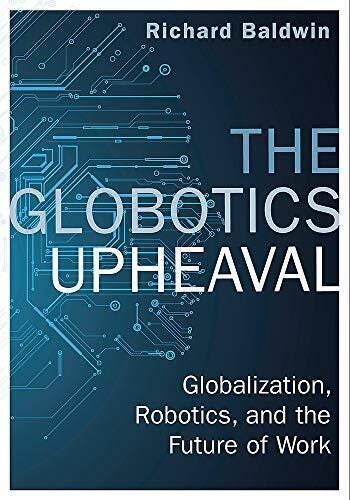Once is a happenstance, twice is coincidence, three — now we have a trend. This will be the third year that I join Shafquat Rabbee in making a few calls for the coming year. This year, I will also throw in Shafiqul Alam’s prediction in the mix with Rabbee’s and the Financial Times challenge.
Anyone who writes about politics and society and other matters of public interest should, from time to time, write down their calls and hold themselves to account. Noting that we are fallibles students of society, not soothsayers and seers, and our calls are likely to be wrong, the idea is to write down a few specific statements, and for each, an explanation noting the assumptions and mechanism — essentially, a set of conditional forecasts: I assume X and Y will happen this year, and if they do, I predict Z by next year. Hopefully others will join the exercise.
Of course, before going any further, I should note how I fared against the 2023 predictions.
One big ticket call I got wrong was about the exchange rate.* I expected taka would end the year at 135 per US dollar. This patently did not happen. More important than the exact forecast, however, is the underlying story that I got wrong. My expectation 12 months ago was that the authorities would be pursuing orthodox policies — gradual depreciation of the taka and higher interest rates while withdrawing the draconian import controls — in line with the IMF program, and a recovery would have ensued by now. In the event, the orthodoxy commenced only towards the end of the year.
Staying with the economy — both in comparison with Rabbee’s forecasts as well as the FT challenge — my expectation was for a softish landing in the west, and avoidance of a crisis in Bangladesh. I was perhaps more optimistic than most. In the event, soft landing seems to be materialising even more smoothly than I had expected.
On politics, like Rabbee, I expected the regime would ‘survive 2023’. I disagreed with him that BNP would join the election. Both as ‘point forecasts’ as well as the underlying story, my expectations from 12 months ago seems to have eventuated. But it would be disingenuous of me to end the story with ‘I got it right’. This is because, over the course of the year, my views evolved considerably, and this needs to be noted if you, dear reader, are to hold me to account.
Allow me to explain.
At the beginning of the year, my expectation was that the Hasina regime would not budge on the election, and the BNP would not participate in any election under her. I expected a collission of unstoppable force and immovable object to occur some time after the election. My expectations about the two sides’ actions remained relatively unchanged throughout the year, but as the year progressed, a collission seemed more and more imminent. In the event, none has eventuated.
Another big thing I got wrong — both compared with Rabbee as well as the FT challenge — was about Ukraine: I expected the war to end in 2023, with concereted western firepower yielding a defeat (of sorts) for Russia. This clearly has not happened.
Finally, no one expected a war in Palestine in 2023. But when the war erupted, it affected everything else, including Bangladesh. And it would be remiss of me if I didn’t note that in private conversations, I thought the war could make American actions in Bangladesh more likely — Uncle Sam needed a good news story like ‘help restore democracy in a Muslim country’, I reasoned. I was wrong.
I will leave the reader to go through the details of 2023 forecasts. Let me turn to 2024 now, starting with the FT challenge.
The first question FT asks is ‘Will Donald Trump become US president again?’. My answer, echoing that of Edward Luce, is NO. The American presidential election will be the largest media story of the year. The result will have profound consequences for the world. And I plan to avoid all the commentary and write nothing about it beyond my expectation that a combination of strong economic fundamentals and the fear of Trump 2.0 will cement a Biden re-election.
My answers to the rest of the FT challenge follows, with some observations (where none is offered, it means I don’t know any better than to question the expert opinion).
Will 2024 surpass 2023 as the hottest year on record? YES
Will the Israel-Hamas war trigger a full-blown regional conflict? NO
While that part of the world will remain volatile, none of the major powers wants a conflagration.
Will the US achieve a soft landing? YES
I think the cool central bankers have got this.
Will Keir Starmer become UK prime minister? YES
Though, technically the election could be pushed as far back as January 2025.
Will China’s economic growth crash to 3 per cent or less? NO
I have been reading up on China, and plan to write about it (but not here).
Will a change of president in Taiwan spark a Chinese attack? NO
See above.
Will the US and the EU keep funding Ukraine? YES
However, the details and fine prints will probably change.
Will Ursula von der Leyen secure a second term as European Commission president? YES
Will the Bank of Japan raise rates above zero? YES
Robin Harding says that the BoJ is unlikely to raise rates above zero, though market expects rates to rise from the current negative territory. I think we will see a very small positive rate. At this stage, no plans to write about Japan.
Will the ANC vote fall below 50 per cent in South Africa’s election? YES
It will be momentous. Will I write about it though?
Will Argentina dollarise its economy? NO
I do plan to write about Argentina (though not here), but perhaps more as economic history than their current woes.
Will renewables overtake coal in global electricity generation? NO
Will investors go heavily back into bonds? YES
Will X go bankrupt? YES
Will Sam Altman be sacked again from OpenAI? NO
Will capital markets reopen for IPOs? YES
Will Novo Nordisk end the year as Europe’s most valuable company? YES
Will female pop stars out-earn the men in concert tours? NO
As the FT expert explains, it depends on who is counted as a star.
Will Britain return the Parthenon marbles to Greece? YES
Let’s move on to Rabbee’s 2024 predictions.
Immigration
I expect immigration to be or remain a hot topic across the developed world (he says ‘developing world’ — not sure if that is typo). However, details will vary depending country contexts, least of all economic contexts. He also talks about Europe, a part of the world I don’t know enough about to make a call.
Palestine
As noted above, I don’t expect a regional conflagration. I expect the Israeli public will turn against Netanyahu government in coming months. Americans will talk about a two-state solution, but nothing will happen before November. Palestinian misery will continue, even if carpet bombing of Gaza ends.
Rabbee gives a much more detailed scenario, but I think we are not dissimilar. I agree with him that Israel would try to use the global immigration debate to ethnically cleanse Palestinians of the occupied territory, and fail.
Ukraine
Rabbee expects a Russian ‘victory’ of sorts by 2025. I think the war will continue in 2024.
China
Rabbee is firmly on the ‘peak China’ camp, and doesn’t expect a war in Taiwan. I agree on Taiwan. I also agree on ‘peak China’, but think it will be a slower process than Rabbee expects.
America
On the election — see above. On the economy — soft landing followed by steady growth. Rabbee has more details and caveats.
India
Rabbee expects Modi to win and the status quo to continue. I expect the election to be much closer than the last two, and more bitterly fought. I also expect instability on both economic and foreign policy fronts, and I don’t expect India to gain significantly from ‘peak China’.
Pakistan
In one key difference with Rabbee, I don’t expect Imran Khan to return to power. Pakistan politics will continue as before, with Khan joining a long list of civilian prime ministers to be discarded by its ‘establishment’.
Bangladesh
Finally, with respect to Bangladesh — I expect 2024 to be a ‘less interesting year’ than 2023. The economy will stabilise, and the regime will tighten its grip. There are structural problems in the economy, and the regime has no succession mechanism after Hasina. These things would blow up at some point, but maybe not in 2024.
And that takes us to Shafiqul Alam’s predictions for 2024. I broadly agree with his calls, except the last one. He expects:
There will be sharp polarisation in the Bangladesh society. You will be either With Us or Against Us. There will be no middle ground. It will spell the doom for long term fence sitters and middle grounders including writers, top editors, civil society leaders and secular champions.
My take is somewhat different. I expect a lot of writers, top editors, civil society leaders, secular champions, as well as social media superstars and preachers of various types will lose influence. I expect there to be more apathy than polarisation.
That is, I expect 2024 to be a less interesting year than all the sound and fury around the American election or the doom and gloom from Palestine might suggest. Sadly, this doesn’t mean it will necessarily be a better year. At least, not for Bangladesh.
*After the piece was first posted, a reader wrote to me as follows:
You were actually not wrong with the prediction on taka. Bangladeshe taka 135-ei sell hoiche. Jara desh chere ashche, they had to buy above 130, even 135 in some Cases. Hundi onek takar jonne average rate dey. But dhoren jei cheleta 500 dollar anbe for initial expenses, oita to khub kom. Tokhon ei rate bole.
Selected reading and viewing from 2023









